Mixtapes & Hip Hop - The History
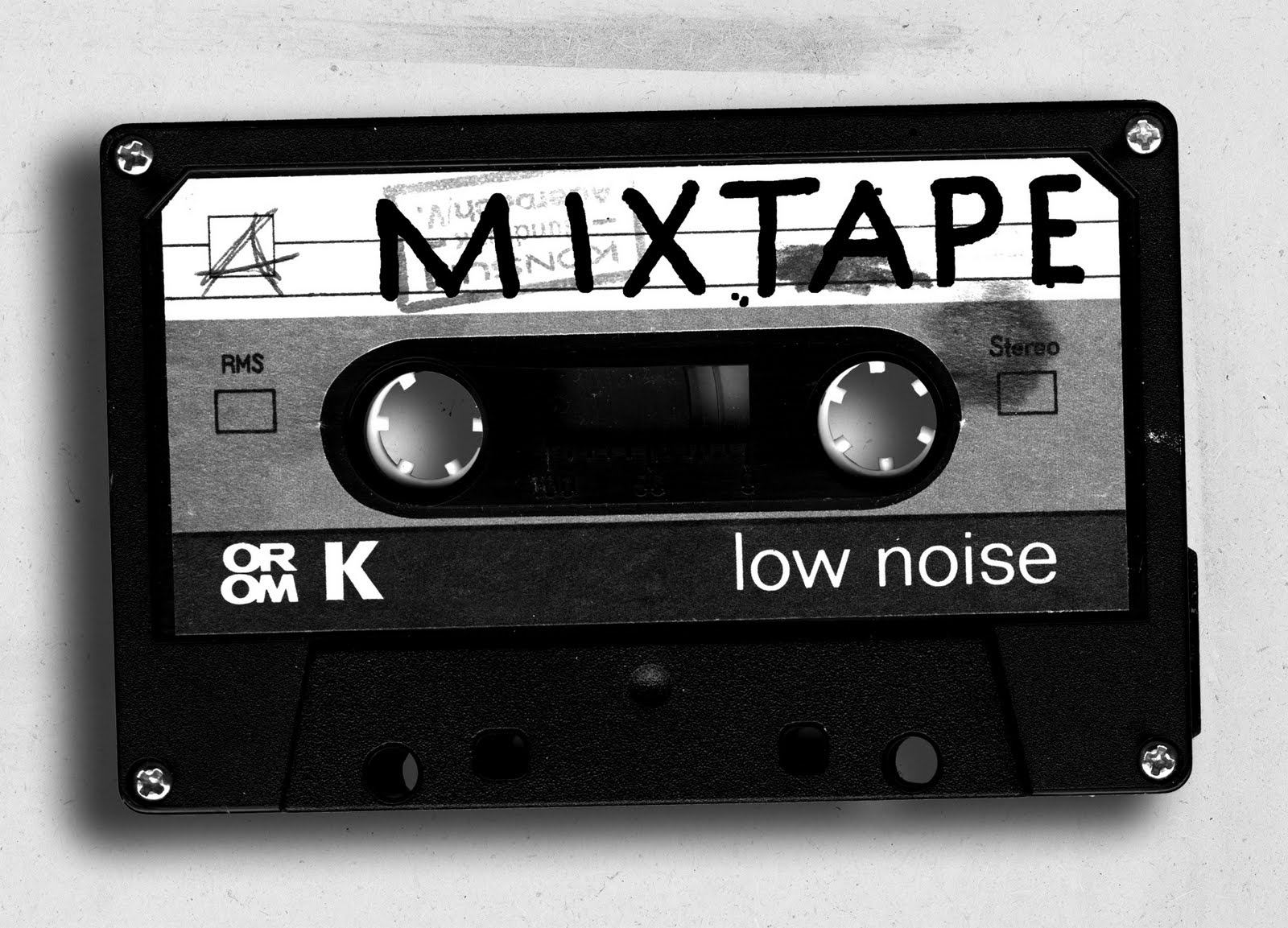
I am a huge hip-hop fan, and I hope to show everyone my passion towards the music with more blog entries surrounding the topic. I think mix tapes are a good topic to start as I’m sure more and more of you relying on this form of music because of all the recent shut downs of music downloading websites. Since the introduction of the Internet, nearly all aspects of life have been shaped in some form or another to take advantage of the immense opportunities the web can provide. Music acts as no exception. Regardless of the music industry suffering major losses due to the increase in illegal downloading through peer-to-peer networks and other online sharing, mix-tapes have managed to take advantage of the Internets potentials and prosper in the digital age. It is through the exposure and mergence of the Internet, that these mix-tapes have become dramatically transformed. Not only have they taken on a digital form, but their accessibility to the public has been greatly enhanced. With this ease of access, along with the affordability of recording technology, the rate of participation in mix-tape culture has significantly risen, turning the mix-tape into an item, which is used for promotion and social networking on the Internet.
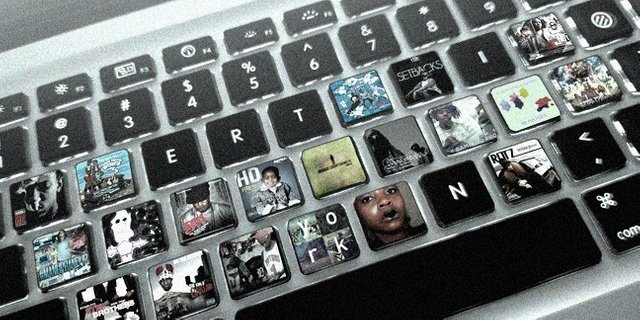
Though a mix-tape can pertain around a wide variety of different musical genres, I will be focusing strictly on the Internets influence on hip-hop music. Mix-tapes act as the voice for those who cannot be heard allowing people to express themselves through music without having to face the hardships and disappointments of the studio industry. This unique method has paved the way for “self sufficiency and self production,” which in turn allows for music to not have such a strong reliance on the mass culture industry for high quality products. Due to this radical shift on home brewed music and the rise of technical social mediums, mix-tapes have become a readily available alternative media.
The mix-tape saw its rise in the music culture during the late 1960’s. It all began with new technology allowing DJ’s to spin records from multiple turntables, creating a blend of new and original mixes that were recorded onto cassette tapes. As this technique became more widely utilized, it eventually made its way into African-American communities. These communities utilized the technology, placing their own original style of musical expression upon the medium, thus aiding the emergence of hip-hop in American culture. Hip hop played a crucial role for the mix-tape acting as the primary “mass medium,” which popularized the music before its acceptance among popular culture. Because of this, we can accredit hip-hop as one of the dominant forms of music, which lead to the prevalent use of circulation for the mix-tape.
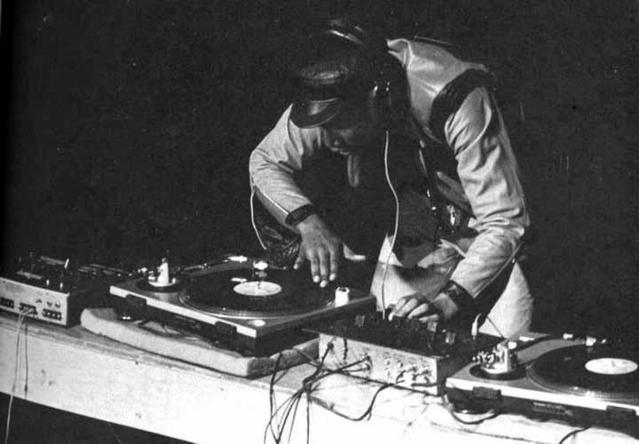
Though mix-tape was once distributed in cassette form, in contemporary society they are now created primarily as CD’s, or digitized into MP3. They serve a significant importance to artists, as they have the potential to “make or break careers”. This is because mix-tapes function as promotional products for many artists in both “commercial and noncommercial” means. Currently, mix-tapes have become a collection of music where a number of mixes, freestyles and “unreleased or exclusive tracks” can be combined. Typically mix-tapes are sold depending on if the artist releasing the album is signed to a label or not. However, the Internet has allowed for the free distribution of these products for artists that are currently not signed to a label and are willing to share their work, cost free. Various online websites enable these artists to share their work across the world, and open themselves up to a vast community of like- minded individuals. They can share and exchange ideas over their music as well as thousands of other artists. Though the Internet does have the potential to act as very positive medium for the mix-tape, it has also caused the music industry some very negative outcomes.
Due to the rapid utilization and accessibility of the Internet, the music industry has suffered staggering losses. The rise of peer-to-peer (P2P) networking sites has only made this situation worse. These websites allow the distribution of illegal copy righted music to anyone with an Internet connection. In 2001, there were an estimated one billion music files being circulated on the Internet. Those numbers have only significantly increased over the last decade.
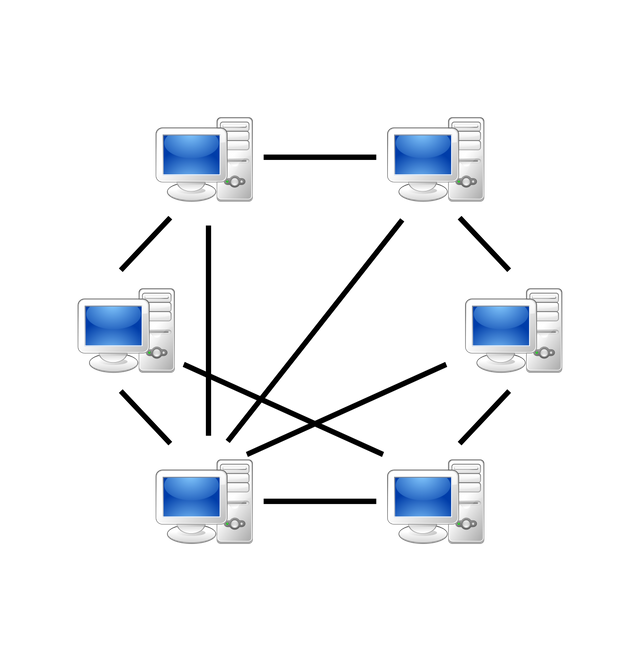
The reason the Internet has had such a negative impact on the music industry’s economic structure is because the industry operates through a system of networks, which work to place musical products through a “process of commodification”. Once a piece of music has been made, it is then transferred to a form of media such as a CD. After it has reached this form, it is then physically distributed across retail stores. This entire process, including marketing and advertising, is all mediated through a particular Record company. The music is the commodity, where the physical unit stands as the means for financial gain. The Internet takes advantage of this separation, removing the physical aspect from music, turning it strictly into a commodified structure, leaving the retail stores out of the equation. Though it is estimated that a record company need only sell 10% of the physical units to recover their invested funds, 90% of their music ventures end up taking a loss. This dramatic imbalance is what makes piracy such a threat to the music business.
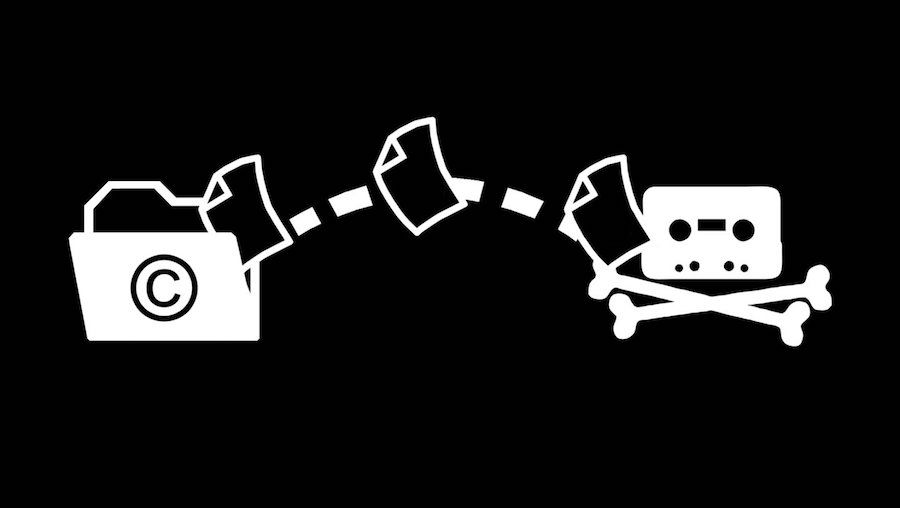
Though this use of “Internet piracy” has played a key role in damaging the music industries potential for higher profit earnings, it has also inspired new forms of business models, which work to make use of the Internet as a positive, rather than a negative. One of these strategies has been to distinguish the notion that artists have to be “discovered by a record label”. Record labels are finally coming to terms with the fact that unsigned artists are able to produce high quality music, due too affordability and changing nature of recording equipment. This shift in the industry creates more incentive for unsigned artists to produce music due to the fact that they actually might have a chance to have their voice heard, who would otherwise never be able to get their foot into the music industry. This very incentive and ease of technology can be attributed to the rapid development of mix-tapes. Anyone with a computer and a microphone can record an album and distribute it on the Internet. Though a record label may not pick it up, it still allows for an increased freedom of sharing creativity with the rest of the world.
In the past, for an artist to distribute a mix-tape, he or she would have to pay off a local vendor to sell it in their stores, or simply sell it on the streets. Regardless of the success that came with these methods, these mix-tapes were still strictly limited in the amount of people they could be distributed too. With the Internet, artists are able to pay a minimal fee and have their mix-tape distributed to potentially millions more people, changing the middleman from a physical to a digital realm.
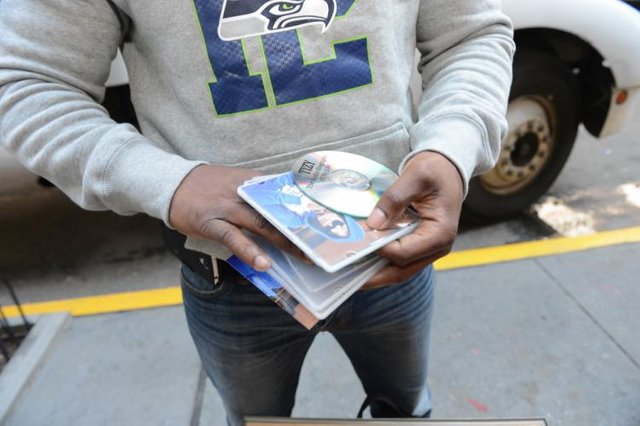
Though the mix-tape may not have began as a democratic practice since most the tapes were recordings of concerts or mixes made by DJ’s that were sold at a high cost, an increase in affordable recording technology has allowed for them to become more publicly regulated while the Internet has made them far more accessible. These two aspects must work in conjunction with one another in order for the mix-tape to thrive at the level it is at now. Bertolt Brecht wrote, “a democratically controlled technology could dissolve the previously closed processes of social and cultural transmission (…) turning the audience not only unto pupils, but into teachers”. Taking into account this quote, we can see how the Internet has transformed mix-tape to fit this function perfectly. Anyone with the appropriate technology has the potential to participate, leaving the doors open for limitless involvement. Making music no longer functions as the impossible dream only available for the few, now the masses are able to shift from audiences to musicians. Although, hip hop has gone through the process of commercialization and thus caused it to face a generic structure, this democratic nature of mix-tapes allow for creativity to actively be distributed across the market. Due to anyone being able to contribute to the musical genre, new sounds are constantly being distributed instead of the same generic ones being played on the radio. The Internet serves as the primary method of distribution, allowing for this multitude of creative expression under the genre to be spread worldwide.
The appeal of mix-tapes for the masses is that they are normally 100% free, and perfectly legal to download. Websites like itsbx.com or datpiff.com, offer a wide variety of mix-tapes from signed and unsigned artists. Given that albums produced under a record label cost money, mix-tapes hold a very obvious advantage. Though this may reduce their consumer demand, the Internet drastically increases their accessibility, and potentially remove any morally aligned feelings people may endure when pirating music. This is not too say that studio or “real” albums function as any more difficult to acquire for free, it just shows that mix-tapes do have a slight advantage for the law abiding citizen. The fact of the matter is that it is far too easy to download music. Since there are legal implications that come along with it, the average civilian holds no fears of prosecution for their actions.
Even mainstream artists take part in the free distribution of mix-tapes as they are well aware that their album only needs to be bought by a single person in order to be shared with millions. Artists like; Dipset, Wiz Khalifa, Lil Wayne, distribute free music for the public on a regular basis. Of course they release studio albums as well, but even these big names know that the public will judge their album by the basis on how good their mix-tape was. Essentially, a good majority of their sales will rely on the success of their mix-tape. The fans need to know that their favourite artist can still provide them with an astonishing auditory experience. Even artists like P. Diddy have capitalized on this mix-tape culture by using it as a testing ground for new talent under his label. This could potentially save hundreds of thousands of dollars of wasted money put towards a new artists album, only to find that no nobody likes them. The Internet allows for this ease of conformation, not only through availability, but also through the audiences opinions.
Ironically, at this point in time, the mix-tape industry is flourishing, while the “real” music industry is facing a downfall. Mix-tapes have found their way into popular culture and directly conflicting with mass culture. This shows that an artist need not be part of a record label in order to achieve greatness, nor financial success. Take for instance take the hip-hop group Dead Prez. This group achieved financial success even while remaining underground artists. Even though the music industry places particular importance onto mainstream hip hop, Dead Prez remained underground, only using their own self-produced mix-tapes, which were sold in the streets and more importantly, on the Internet, which acted as their main source of distribution. Acting as a highly political rap group, by manufacturing their own albums, Dead Prez was able to place more control into their music by gaining a sense of empowerment. They take this unique stance by merging politics with physical production to create very inspiring music. Here we can see how mix-tapes can act as something greater than a studio album. It gives the artists not only a sense of self, but also a higher sense of accomplishment knowing that they did not need anyone to help them. The Internet is what allows this type of music to flourish. There is no way Dead Prez could achieve financial success by only distributing albums on the streets or in local vendors. This type of distribution would only limit their messages to specific enclosed areas. The Internet gives artists like Dead Prez, along with thousands other struggling artists a chance to have a multinational voice and influence. Thus, Dead Prez proved that an artist does not need a fancy record label to distribute albums for them in order to be successful. Instead they only used the Internet as the primary means of distribution and advertising, which can achieve them “economic empowerment” if done properly.
The Internet has not only aided to the distribution of mix-tapes, but is has also shaped this into a source of social networking. Various mix-tape websites provide comment boards, rating systems, and a number of download meters, so that the artists can receive crucial feedback from the general public as well as know how many people listened to their music. Artists are free to communicate with one another and sometimes even collaborate, forming relationships with others facing the same struggle. Anyone can enter these sites and download an unlimited amount of albums from known and unknown artists. Upon listening, they have the option to drop into the discussion boards and talk to the artists, fans or even the infamous “hater” that comes with every musician. Artists come to appreciate how many people listened to their music and how they have rated it, rather than on how well it sold. These types of options would never have been possible without the Internet as this media provides a much deeper level of engagement for any artist.
Moreover, this concept of mix-tapes becoming a source of social networking creates more incentive for artists to produce music. But, it is not right to say that mix-tapes function as a precursor for artists to make into the mainstream music industry.
In fact, many artists like Chris Young work to only release free music to the public. Not every person who distributes a mix-tape does it for strictly financial purposes. Some just do it for the shear art and joy of it all. The Internet just allows for these creative albums to be circulated across a wide range of audience members without having to deal with any pesky copyright infringements or other issues of legality that typically revolve around music distribution. The Internet allows the impossible, for anyone to position himself or herself as an artist. It removes all restrictions that normally pertain to the industry. This also adds to the increased rate of participation. People can post their mix-tapes without any fear of rejection or damaging their name, since anything can be posted anonymously.

Another prominent impact the Internet had upon mix-tapes, along with all other music-based mediums was the shift from the physical to the digital. This is not to say that all mix-tapes are acquired by digital means, just that it has become a dominant shift.
Even the ones that are placed onto a CD are normally just transferred onto a computer so that fans can take advantage of the Internet, or be able to play them on their MP3 devices. Not only does this make their music more accessible, it allows the potential for an infinite shelf life, becoming immortalized on the web. Moreover, the one copy that is transferred into the Internet is changed into an endless amount of copies. No longer do artists have to deal with constant copying of their Album covers and burning CD’s over and over again. Instead, they just need to upload one copy to the Internet, once digitized it can be shared a limitless amount of times.
Hundreds of artists have found fame using mostly mix-tapes as their means of sharing their music with the public such as; Drake, Dipset, even 50 Cent, just to name a few. These artists would have not reached such a high level of popularity if they could only hand out a CD to passer bys on the street. The Internet allows these, along with any other artist to distribute their music world wide to a social network of like-minded individuals. With such increased mobility the potential for the rate of distribution is virtually limitless.
Though the Internet has had a negative impact on this music industries capability for maximum profit gaining, it has also opened the doors for new and exciting possibilities. In terms of mix-tapes, the Internet has served as the largest influence in their transformation into contemporary society. Not only have they shifted from being on the streets to in the homes of anyone with an Internet connection, mix-tapes offer incentive for anyone to participate in music, thus allowing the “student to become the teacher” to take part in this free alternative to music listening, with limitless potential through the Internet.
Dope read! But I would have made this into a two/three part piece, to spread your ideas better... Personally, I am a huge hiphop fan, and I would love to read more of this.
Appreciate it. I have a few more posts in the area I will be working on, will definitely look into shortening them ha.
Dope article.
Much appreciated, glad you enjoyed it.